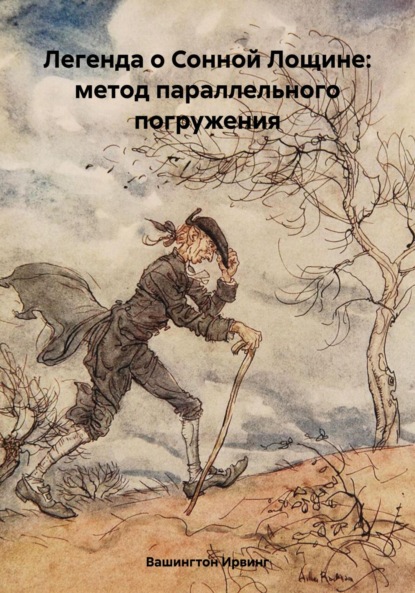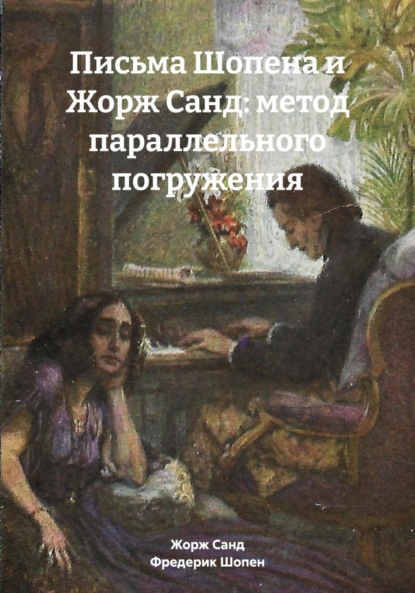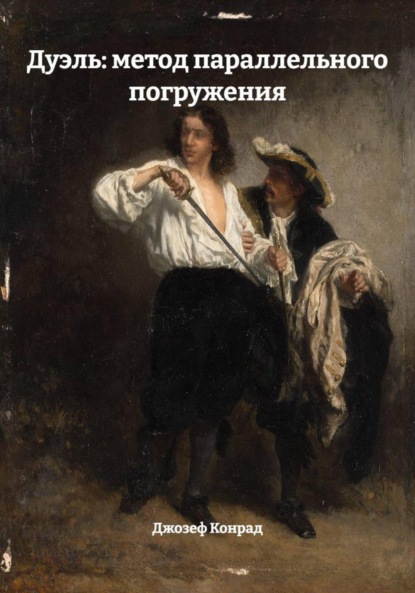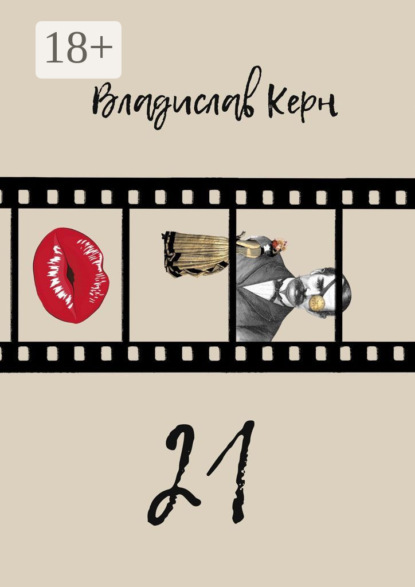Гордость и предубеждение: метод параллельного погружения
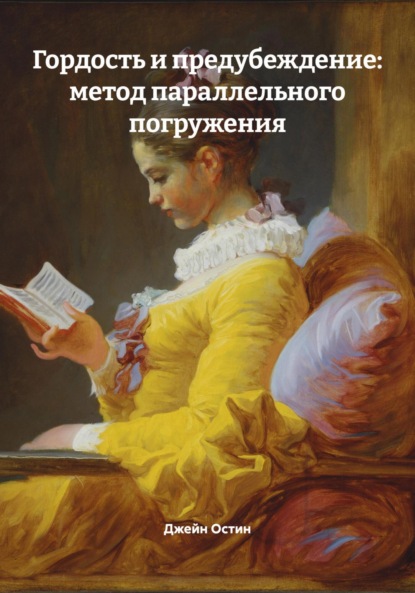
- -
- 100%
- +
They returned, therefore, in good spirits to Longbourn, the village where they lived, and of which they were the principal inhabitants. They found Mr. Bennet still up. With a book, he was regardless of time; and on the present occasion he had a good deal of curiosity as to the event of an evening which had raised such splendid expectations. He had rather hoped that all his wife’s views on the stranger would be disappointed; but he soon found that he had a very different story to hear.
“Oh, my dear Mr. Bennet,” («О, мой дорогой мистер Беннет,») as she entered the room, (– сказала она, входя в комнату; entered the room – вошла в комнату.) “we have had a most delightful evening, a most excellent ball. (у нас был совершенно восхитительный вечер, просто превосходный бал; delightful – восхитительный; excellent – превосходный.) I wish you had been there. (Жаль, что тебя там не было; I wish you had been – жаль, что ты был не…) Jane was so admired, nothing could be like it. (Джейн вызывала такое восхищение – ничего с этим не сравнится; was admired – вызывала восхищение; nothing could be like it – это было бесподобно.) Everybody said how well she looked; (Все говорили, как хорошо она выглядела.) and Mr. Bingley thought her quite beautiful, and danced with her twice. (А мистер Бингли счёл её очень красивой и танцевал с ней дважды; quite beautiful – весьма красивой; danced with her twice – дважды танцевал с ней.) Only think of that, my dear: he actually danced with her twice; (Только подумай об этом, дорогой: он действительно танцевал с ней дважды; only think of that – только представь; actually – на самом деле, в самом деле.) and she was the only creature in the room that he asked a second time. (и она была единственным созданием в комнате, которую он пригласил второй раз; only creature – единственное созданием ; asked a second time – пригласил ещё раз.) First of all, he asked Miss Lucas. (Сначала он пригласил мисс Лукас.)
“Oh, my dear Mr. Bennet,” as she entered the room, “we have had a most delightful evening, a most excellent ball. I wish you had been there. Jane was so admired, nothing could be like it. Everybody said how well she looked; and Mr. Bingley thought her quite beautiful, and danced with her twice. Only think of that, my dear: he actually danced with her twice; and she was the only creature in the room that he asked a second time. First of all, he asked Miss Lucas.
I was so vexed to see him stand up with her; (Я была так раздражена, увидев, что он встал в пару с ней; vexed – раздосадована, раздражена; stand up with – танцевать с кем-то.) but, however, he did not admire her at all; indeed, nobody can, you know; (но всё же он вовсе ею не восхищался; в самом деле, никто не может – ты же знаешь; did not admire her at all – совсем ею не восхищался.) and he seemed quite struck with Jane as she was going down the dance. (и он, казалось, был поражён Джейн, когда она проходила мимо в танце; struck with – поражён, впечатлён.) So he inquired who she was, and got introduced, and asked her for the two next. (Он спросил, кто она такая, с ним познакомили, и он пригласил её на два следующих танца; inquired – поинтересовался; got introduced – с ним познакомили; the two next – два следующих танца.) Then, the two third he danced with Miss King, and the two fourth with Maria Lucas, (Затем два третьих танца он станцевал с мисс Кинг, два четвёртых – с Марией Лукас.) and the two fifth with Jane again, and the two sixth with Lizzy, and the Boulanger–” (а два пятых снова с Джейн, два шестых – с Лиззи, и «Буланже» – [народный французский танец]; Boulanger – танец «Буланже», обычно завершающий бал.)
I was so vexed to see him stand up with her; but, however, he did not admire her at all; indeed, nobody can, you know; and he seemed quite struck with Jane as she was going down the dance. So he inquired who she was, and got introduced, and asked her for the two next. Then, the two third he danced with Miss King, and the two fourth with Maria Lucas, and the two fifth with Jane again, and the two sixth with Lizzy, and the Boulanger——”
“If he had had any compassion for me,” cried her husband impatiently, («Если бы у него было хоть капля сострадания ко мне, – воскликнул её муж с нетерпением; had had – если бы у него было (прошедшее сослагательное наклонение); compassion – сострадание; impatiently – нетерпеливо.) “he would not have danced half so much! (он бы и наполовину столько не танцевал!; would not have danced – не стал бы танцевать (в прошедшем времени); half so much – наполовину столько.) For God’s sake, say no more of his partners. (Ради Бога, не говори больше о его партнёршах; for God’s sake – ради Бога; say no more – не говори больше.) O that he had sprained his ancle in the first dance!” (О, если бы он вывихнул лодыжку на первом танце!; sprained his ancle – вывихнул лодыжку.)
“Oh, my dear,” continued Mrs. Bennet, («О, дорогой, – продолжала миссис Беннет,) “I am quite delighted with him. He is so excessively handsome! (я просто в восторге от него. Он такой необычайно красивый!; delighted – в восторге; excessively – чрезмерно, очень.) and his sisters are charming women. (а его сёстры – прелестные женщины.) I never in my life saw anything more elegant than their dresses. (Никогда в жизни я не видела ничего более изысканного, чем их платья; more elegant than – более элегантное, чем.) I dare say the lace upon Mrs. Hurst’s gown–” (Думаю, кружево на платье миссис Хёрст…; I dare say – осмелюсь сказать, думаю; lace – кружево; gown – платье.)
“If he had had any compassion for me,” cried her husband impatiently, “he would not have danced half so much! For God’s sake, say no more of his partners. O that he had sprained his ancle in the first dance!”
“Oh, my dear,” continued Mrs. Bennet, “I am quite delighted with him. He is so excessively handsome! and his sisters are charming women. I never in my life saw anything more elegant than their dresses. I dare say the lace upon Mrs. Hurst’s gown–”
Here she was interrupted again. (Тут её снова перебили.) Mr. Bennet protested against any description of finery. (Мистер Беннет выразил протест против всякого описания нарядов; protested against – выразил протест против; finery – украшения, роскошные наряды.) She was therefore obliged to seek another branch of the subject, (Поэтому ей пришлось обратиться к другой теме; was obliged – была вынуждена; branch of the subject – направление беседы.) and related, with much bitterness of spirit, and some exaggeration, the shocking rudeness of Mr. Darcy. (и с большой горечью (и некоторым преувеличением) рассказала о возмутительной грубости мистера Дарси; bitterness of spirit – душевная горечь; exaggeration – преувеличение; shocking rudeness – возмутительная грубость.)
Here she was interrupted again. Mr. Bennet protested against any description of finery. She was therefore obliged to seek another branch of the subject, and related, with much bitterness of spirit, and some exaggeration, the shocking rudeness of Mr. Darcy.
“But I can assure you,” she added, («Но я тебя уверяю, – добавила она; I can assure you – уверяю тебя.) “that Lizzy does not lose much by not suiting his fancy; (что Лиззи особенно ничего не теряет оттого, что не пришлась ему по вкусу; lose much – много терять; suiting his fancy – прийтись ему по вкусу.) for he is a most disagreeable, horrid man, not at all worth pleasing. (ведь он – крайне неприятный, ужасный человек, вовсе не заслуживающий стараний; disagreeable – неприятный; horrid – ужасный; worth pleasing – стоящий того, чтобы ему угождать.) So high and so conceited, that there was no enduring him! (Такой надменный и самодовольный, что его невозможно было выносить!; conceited – самодовольный; no enduring him – невозможно было терпеть.) He walked here, and he walked there, fancying himself so very great! (Он ходил туда-сюда, воображая, какой он важный!; fancying himself – воображая себя.) Not handsome enough to dance with! (Не достаточно красив, чтобы танцевать с кем-то!) I wish you had been there, my dear, to have given him one of your set-downs. (Жаль, что тебя там не было, дорогой, чтобы ты осадил его как умеешь; set-down – резкий, язвительный ответ.) I quite detest the man.” (Я просто терпеть не могу этого человека; detest – ненавижу, испытываю отвращение.)
“But I can assure you,” she added, “that Lizzy does not lose much by not suiting his fancy; for he is a most disagreeable, horrid man, not at all worth pleasing. So high and so conceited, that there was no enduring him! He walked here, and he walked there, fancying himself so very great! Not handsome enough to dance with! I wish you had been there, my dear, to have given him one of your set-downs. I quite detest the man.”
CHAPTER IV. (ГЛАВА ЧЕТВЕРТАЯ.)
WHEN Jane and Elizabeth were alone, (Когда Джейн и Элизабет остались одни; were alone – были вдвоём, без других.) the former, who had been cautious in her praise of Mr. Bingley before, (первая из них, /т.е. Джейн/, которая раньше была сдержанной в похвале мистеру Бингли; the former – первая из упомянутых; cautious – осторожной, осмотрительной; praise – похвала.) expressed to her sister how very much she admired him. (выразила сестре, как сильно он ей нравится; how very much – насколько сильно; admired – восхищалась.)
“He is just what a young man ought to be,” said she, («Он именно такой, каким и должен быть молодой человек», – сказала она; ought to be – должен быть.) “sensible, good-humoured, lively; (разумный, добродушный, живой; sensible – разумный, благоразумный; good-humoured – в хорошем расположении духа, добродушный; lively – оживлённый.) and I never saw such happy manners! (и я никогда не видела столь приятных манер!; happy manners – в контексте: удачные, гармоничные, обаятельные манеры.) so much ease, with such perfect good breeding!” (столько непринуждённости и при этом безупречное воспитание; ease – лёгкость, непринуждённость; good breeding – хорошее воспитание.)
CHAPTER IV.
WHEN Jane and Elizabeth were alone, the former, who had been cautious in her praise of Mr. Bingley before, expressed to her sister how very much she admired him.
“He is just what a young-man ought to be,” said she, “sensible, good-humoured, lively; and I never saw such happy manners! so much ease, with such perfect good breeding!”
“He is also handsome,” replied Elizabeth, («Он ещё и красив», – ответила Элизабет.) “which a young man ought likewise to be if he possibly can. (что молодой человек тоже должен быть, если это вообще возможно; ought likewise to be – также должен быть; if he possibly can – если он в состоянии, если может.) His character is thereby complete.” (Его характер этим завершён; thereby – таким образом, этим самым; complete – завершён, полноценен.)
“I was very much flattered by his asking me to dance a second time. (Мне было очень приятно, что он пригласил меня на танец во второй раз; was flattered – было приятно, польщена; asking me – пригласил меня.) I did not expect such a compliment.” (Я не ожидала такого комплимента.)
“He is also handsome,” replied Elizabeth, “which a young man ought likewise to be if he possibly can. His character is thereby complete.”
“I was very much flattered by his asking me to dance a second time. I did not expect such a compliment.”
“Did not you? I did for you. (Не ожидала? А я – ожидала за тебя; Did not you? – Разве нет? (архаичная форма); I did for you – я ожидала это за тебя), But that is one great difference between us. (Но это одно из главных различий между нами; difference – различие). Compliments always take you by surprise, and me never. (Комплименты всегда застают тебя врасплох, а меня – никогда; take by surprise – застать врасплох). What could be more natural than his asking you again? (Что может быть естественнее, чем его повторное приглашение?; natural – естественный; his asking – то, что он пригласил), He could not help seeing that you were about five times as pretty as every other woman in the room. (Он не мог не заметить, что ты была примерно в пять раз красивее любой другой женщины в комнате; could not help seeing – не мог не заметить; about five times as pretty as – в пять раз красивее, чем). No thanks to his gallantry for that. (И в этом не заслуга его галантности; gallantry – галантность, учтивость; no thanks to – не благодаря). Well, he certainly is very agreeable, and I give you leave to like him. (Ну, он, конечно, очень приятный, и я разрешаю тебе его любить; agreeable – приятный, милый; to give leave – разрешать; to like – нравиться). You have liked many a stupider person.” (Ты уже влюблялась и в гораздо более глупых людей; many a stupider person – немало более глупых людей).
“Did not you? I did for you. But that is one great difference between us. Compliments always take you by surprise, and me never. What could be more natural than his asking you again? He could not help seeing that you were about five times as pretty as every other woman in the room. No thanks to his gallantry for that. Well, he certainly is very agreeable, and I give you leave to like him. You have liked many a stupider person.”
“Dear Lizzy!” («Дорогая Лиззи!»).
“Oh, you are a great deal too apt, you know, to like people in general. (О, ты, знаешь, чересчур склонна любить людей вообще; a great deal – очень, гораздо; too apt – слишком склонна, расположена; in general – в целом, вообще). You never see a fault in anybody. (Ты никогда не видишь недостатков ни в ком; fault – недостаток, ошибка; anybody – кто угодно, любой). All the world are good and agreeable in your eyes. (В твоих глазах все люди хорошие и приятные; all the world – весь мир, все люди; agreeable – приятный, милый). I never heard you speak ill of a human being in my life.” (Я никогда в жизни не слышала, чтобы ты плохо отзывалась о каком-либо человеке; to speak ill of – плохо говорить о ком-либо; human being – человек).
“I would wish not to be hasty in censuring anyone; (Я бы не хотела торопиться с осуждением кого-либо; hasty – поспешный, необдуманный; to censure – осуждать, критиковать; anyone – кого-либо). but I always speak what I think.” (но я всегда говорю то, что думаю; to speak what one thinks – говорить, что думаешь).
“Dear Lizzy!”
“Oh, you are a great deal too apt, you know, to like people in general. You never see a fault in anybody. All the world are good and agreeable in your eyes. I never heard you speak ill of a human being in my life.”
“I would wish not to be hasty in censuring anyone; but I always speak what I think.”
“I know you do: and it is that which makes the wonder. (Я знаю, что ты так и делаешь – и именно это и удивительно; wonder – удивление, чудо). With your good sense, to be so honestly blind to the follies and nonsense of others! (С твоим здравым смыслом – быть так искренне слепой к глупостям и вздору других!; good sense – здравый смысл; honestly blind – по-настоящему слепа; follies – глупости; nonsense – вздор, чепуха). Affectation of candour is common enough; one meets with it everywhere. (Притворная откровенность – вещь довольно обычная; с ней повсюду сталкиваешься; affectation – притворство, напускность; candour – откровенность; common enough – достаточно распространённая; to meet with – сталкиваться). But to be candid without ostentation or design,— (Но быть откровенной без хвастовства и умысла; candid – искренний, откровенный; ostentation – показуха, хвастовство; design – умысел, намерение), to take the good of everybody’s character and make it still better, (видеть хорошее в каждом и ещё приукрашивать это; everybody’s character – характер каждого; still better – ещё лучше), and say nothing of the bad,—belongs to you alone. (а о плохом не говорить вовсе – это присуще только тебе одной; belongs to – принадлежит, свойственно). And so, you like this man’s sisters, too, do you? (И значит, тебе нравятся и сёстры этого человека, да?; man’s sisters – сёстры этого мужчины). Their manners are not equal to his.” (Их манеры не дотягивают до его; manners – манеры, поведение; equal to – равны, соответствуют).
“I know you do: and it is that which makes the wonder. With your good sense, to be so honestly blind to the follies and nonsense of others! Affectation of candour is common enough; one meets with it everywhere. But to be candid without ostentation or design,—to take the good of everybody’s character and make it still better, and say nothing of the bad,—belongs to you alone. And so, you like this man’s sisters, too, do you? Their manners are not equal to his.”
“Certainly not, at first; but they are very pleasing women when you converse with them. (Конечно, нет – сначала; но они очень милые женщины, когда с ними пообщаешься; certainly not – конечно, нет; pleasing – приятные, милые; to converse with – беседовать, общаться). Miss Bingley is to live with her brother, and keep his house; (Мисс Бингли будет жить со своим братом и вести его хозяйство; to keep house – вести хозяйство, дом). and I am much mistaken if we shall not find a very charming neighbour in her.” (и я сильно ошибаюсь, если мы не обнаружим в ней очень обаятельную соседку; I am much mistaken if… – я сильно ошибаюсь, если…; charming – обаятельная; neighbour – соседка).
“Certainly not, at first; but they are very pleasing women when you converse with them. Miss Bingley is to live with her brother, and keep his house; and I am much mistaken if we shall not find a very charming neighbour in her.”
Elizabeth listened in silence (Элизабет слушала молча; listened in silence – слушала молча), but was not convinced (но не была убеждена; convinced – убеждённый): their behaviour at the assembly had not been calculated to please in general (их поведение на балу не могло в целом понравиться; behaviour – поведение; assembly – бал, собрание; had not been calculated to please – не было рассчитано, чтобы понравиться); and with more quickness of observation and less pliancy of temper than her sister (и обладая большей наблюдательностью и меньшей уступчивостью характера, чем её сестра; quickness of observation – наблюдательность; pliancy of temper – мягкость, уступчивость характера), and with a judgment, too, unassailed by any attention to herself (и с суждением, также не затронутым каким-либо вниманием к ней самой; judgment – суждение, мнение; unassailed – не затронутый; attention to herself – внимание к ней), she was very little disposed to approve them (она была очень мало расположена их одобрить; disposed to approve – склонна одобрить). They were, in fact, very fine ladies (они, по сути, были весьма знатные дамы; in fact – на самом деле; fine ladies – знатные дамы); not deficient in good-humour when they were pleased (не лишённые хорошего настроения, когда были довольны; not deficient – не лишённые; good-humour – хорошее настроение), nor in the power of being agreeable where they chose it (и не лишённые умения быть приятными, когда сами того хотели; power of being agreeable – способность быть приятными; where they chose it – когда сами этого хотели); but proud and conceited (но гордые и тщеславные; proud – гордые; conceited – самодовольные).
Elizabeth listened in silence, but was not convinced: their behaviour at the assembly had not been calculated to please in general; and with more quickness of observation and less pliancy of temper than her sister, and with a judgment, too, unassailed by any attention to herself, she was very little disposed to approve them. They were, in fact, very fine ladies; not deficient in good-humour when they were pleased, nor in the power of being agreeable where they chose it; but proud and conceited.
They were rather handsome (они были довольно привлекательны; rather handsome – довольно симпатичные); had been educated in one of the first private seminaries in town (были воспитаны в одном из лучших частных пансионов в городе; educated – обученные; private seminaries – частные пансионы); had a fortune of twenty thousand pounds (имели состояние в двадцать тысяч фунтов; fortune – состояние); were in the habit of spending more than they ought (имели привычку тратить больше, чем следовало; in the habit of – привыкли; ought – следовало бы), and of associating with people of rank (и водились с людьми знатного происхождения; associating with – общаться с; people of rank – знатные люди); and were, therefore, in every respect entitled to think well of themselves and meanly of others (и, следовательно, во всех отношениях считали себя вправе хорошо думать о себе и пренебрежительно – о других; in every respect – во всех отношениях; entitled to – имеющие право; think well of – хорошо думать о; meanly of – пренебрежительно о). They were of a respectable family in the north of England (они происходили из уважаемой семьи на севере Англии; respectable family – уважаемая семья), a circumstance more deeply impressed on their memories (обстоятельство, более глубоко врезавшееся в их память; circumstance – обстоятельство; impressed on their memories – отпечатавшееся в памяти), than that their brother’s fortune and their own had been acquired by trade (чем тот факт, что состояние их брата и их собственное было нажито торговлей; had been acquired – было приобретено; by trade – торговлей).
They were rather handsome; had been educated in one of the first private seminaries in town; had a fortune of twenty thousand pounds; were in the habit of spending more than they ought, and of associating with people of rank; and were, therefore, in every respect entitled to think well of themselves and meanly of others. They were of a respectable family in the north of England; a circumstance more deeply impressed on their memories than that their brother’s fortune and their own had been acquired by trade.
